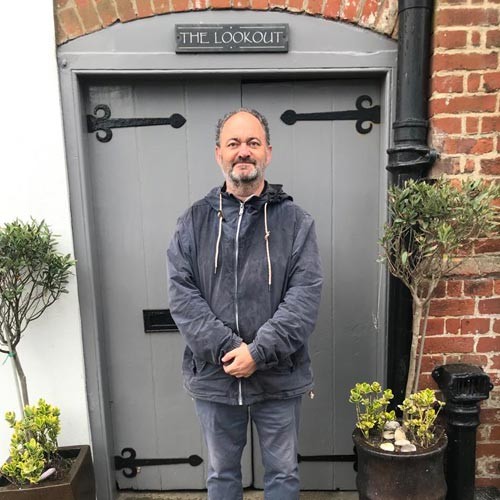One of the UK’s best-known charities, Help for Heroes is seeking new licensing partnerships across a range of categories to help fund its vital work supporting veterans and their families. LicensingSource.net sits down with Tanya Ingleton, Help for Heroes’ head of trading, to find out more.
The cost of living squeeze may be having an impact on charity donations, but Help for Heroes is hopefully in a stronger position than most to weather the economic storms ahead. With an estimated 1 in 4 of the UK population having a link to the military, the charity is close to the hearts of many people, boasting 1.75 million social media followers and a loyal, patriotic supporter base keen to show their allegiance to a great cause: improving the lives of ex-service personnel.
The organisation came into being in 2007 to serve the needs of men and women returning from the wars in Afghanistan and Iraq with life-changing injuries. Over the years it has evolved to help anyone who has served in the British Armed Forces – since 2016 it has been helping people from Afghanistan who worked as translators for the UK military – as well as their families, providing vital physical, psychological, financial and welfare support. To date, the charity has supported more than 27,000 people of all ages, with varying needs.
Help for Heroes’ much-needed projects are funded via public donations, corporate sponsorship, e-commerce and other initiatives, but licensing has an important part to play.
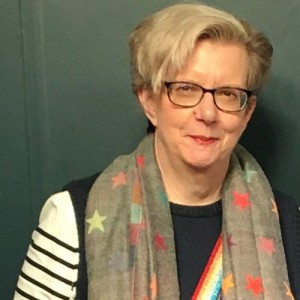 “Licensing is an important development area for us, both for generating revenue and as a way to maintain awareness of veterans’ issues,” commented Tanya Ingleton. “We have an engaged, patriotic audience who like to show their support, so licensing is great for expanding the ways that people can do that. We are also actively working towards diversifying the way that our supporters and partners can show their support for us. This is a collaborative piece of work across the entire charity.”
“Licensing is an important development area for us, both for generating revenue and as a way to maintain awareness of veterans’ issues,” commented Tanya Ingleton. “We have an engaged, patriotic audience who like to show their support, so licensing is great for expanding the ways that people can do that. We are also actively working towards diversifying the way that our supporters and partners can show their support for us. This is a collaborative piece of work across the entire charity.”
Help for Heroes made an initial foray into licensing beginning in 2015, which resulted in headline-grabbing collaborations with the likes of Cadbury (for branded tins of Heroes chocolates), Tate & Lyle (VE Day 75th anniversary baking products), Maynards Bassetts (special edition Peace Baby Jelly Babies) and more. A special Help for Heroes fragrance, created by a team of five veterans and fragrance house CorinCraft, was another stand-out success – Help for Heroes XTREME was stocked by Debenhams, as well as The Perfume Shop, online at Help for Heroes Trading and in the Sandringham Estate Shop.
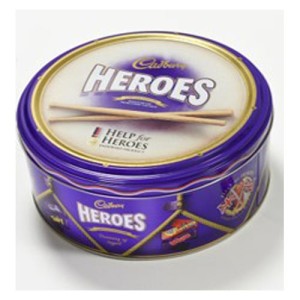 In recent years, other business concerns proved more pressing, and the charity scaled back its licensing efforts. However, Tanya is delighted to report that the programme is now starting up again in earnest and “raring to go”, and she and the team are excited about the opportunities on offer.
In recent years, other business concerns proved more pressing, and the charity scaled back its licensing efforts. However, Tanya is delighted to report that the programme is now starting up again in earnest and “raring to go”, and she and the team are excited about the opportunities on offer.
“We want to find partners to build strong long-term relationships with, where we have genuine authentic connections that are mutually beneficial,” she asserted. “The key will be shared brand values and product that can be developed to meet the needs of veterans and their families. Patriotism and pride are very important to the supporters of Help for Heroes so leaning into those values with partners and the products they can help to deliver will be key.”
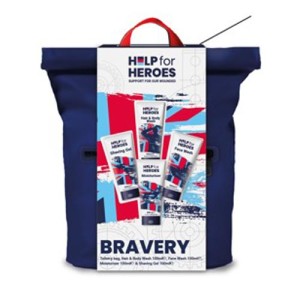 Current partners include Cotton Traders, Dartmouth Brands, Lovell Rugby and VX3 sportswear for apparel and accessories; Otter House Group for diaries and calendars; Ruroc for protective headgear, Kokomo for men’s grooming, and Staffordshire Distillery, part of Derbyshire Spirit Group of Partners, which partnered with the charity in 2022 to launch a collection of gins, vodkas, rums and whisky.
Current partners include Cotton Traders, Dartmouth Brands, Lovell Rugby and VX3 sportswear for apparel and accessories; Otter House Group for diaries and calendars; Ruroc for protective headgear, Kokomo for men’s grooming, and Staffordshire Distillery, part of Derbyshire Spirit Group of Partners, which partnered with the charity in 2022 to launch a collection of gins, vodkas, rums and whisky.
Tanya stresses how important it is that future brand partnerships reflect the values that the charity stands for, as well as the interests of their supporter base.
“Supporters of the charity and their veterans have many affiliations such as the outdoors, gaming, health and wellbeing, so finding partners that speak to their interests and needs will hopefully create many synergies.”
The licensing programme reboot couldn’t come at a more opportune time. Help for Heroes’ 2022 Veterans and Families Survey found that the mental health of veterans with long-term health conditions has declined in the past year, amid concerns around the cost of living, the impact of news coverage of recent conflicts and experiences of loneliness. 85% of veterans living with long-term health conditions say they struggle with their mental health every day, up from 73% in 2021.
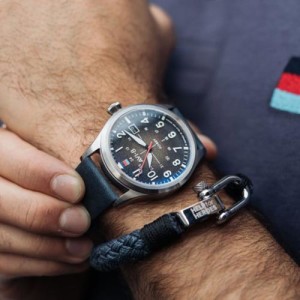 The charity has responded to this by increasing the number of clinicians available to offer mental health support, set up an “immediate needs” grant to support those struggling with the cost of living, and begun offering financial wellbeing courses to provide tools to help people manage their finances, thus alleviating some of the worries about increased energy and food bills. In addition, it has been running a pilot ‘buddy’ scheme for volunteer veterans who have transitioned well to civilian life to support those who feel isolated.
The charity has responded to this by increasing the number of clinicians available to offer mental health support, set up an “immediate needs” grant to support those struggling with the cost of living, and begun offering financial wellbeing courses to provide tools to help people manage their finances, thus alleviating some of the worries about increased energy and food bills. In addition, it has been running a pilot ‘buddy’ scheme for volunteer veterans who have transitioned well to civilian life to support those who feel isolated.
The charity has also been working to create suicide-safer communities for veterans, developing a free 30-minute online training course in partnership with Zero Suicide Alliance to help individuals read between the lines, and spot someone who may be struggling with their mental health.
With 76% of veterans believing they will need support with their mental health in future, and 73% citing the same for their physical health, there is evidently a very real ongoing need for the charity to be able to continue supporting the Armed Forces community. And with 80% of consumers likely to switch product to one that supports a charity, the benefit to businesses in aligning with the Help for Heroes brand are equally clear.
Anyone wishing to get in touch with the team at Help for Heroes about licensing opportunities can contact Tanya on [email protected] or Rachel Wyatt on [email protected].


















